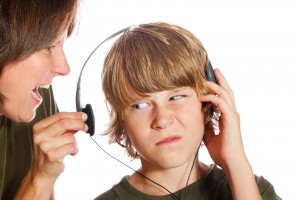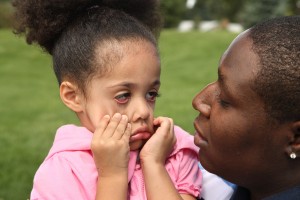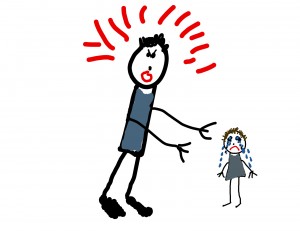Receive your FREE Parenting Advice through this blog. Simply ask Bob Lancer your question and receive his Lancer’s Answer in this blog.

For easier child discipline, try telling your child HOW or WHEN she CAN do what she wants, instead of bluntly clashing against her will.
One reason for this is the natural, human tendency to go into denial.¬† When your child wants to do something, and you say ‚Äúno‚ÄĚ, a part of him that does not want to hear that, causing him to, perhaps unconsciously, pretend you did not say it.
But even when you have your child‚Äôs full attention, the word ‚Äúno‚ÄĚ may still not work well for you.¬† One reason for this is that it simply presents opposition, which will likely frustrate your child, and frustration and child discipline do not mix well.
One effective child discipline alternative to saying ‚Äúno‚ÄĚ is to redirect instead of merely to block.
Rather then simply saying ‚Äúno‚ÄĚ let your child know
what he CAN do instead.
For instance, if your child asks for a cookie, you might say, ‚ÄúYou can have a cookie after you eat all of your lunch later.‚ÄĚ
If your child wants to play outside, but it‚Äôs too dark out for you to allow it, instead of saying ‚Äúno‚ÄĚ you might say, ‚ÄúYou can play outside only when it is light enough to be safe.‚ÄĚ
If your child snatches something from her younger sister, instead of simply barking out, ‚Äúno!‚ÄĚ you might say, ‚ÄúYou can play with that when she is done.‚ÄĚ
By letting your child know what he CAN do, you diminish his natural resistance to opposition.
While it requires a bit more patience and self-control to replace your automatic ‚Äúno‚ÄĚ with a reasonable, positive response, it saves you the strain of a power-struggle.¬† It also helps your child to remain more calm and rational because children feel how we feel while we are with them.
For easier child discipline, try telling your child HOW or WHEN she CAN
do what she wants, instead of bluntly clashing against her will.
Receive your FREE Parenting Advice through this blog. Simply ask Bob Lancer your question and receive his Lancer’s Answer in this blog.





 button.
button. 































